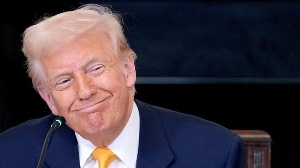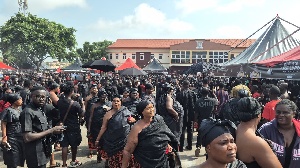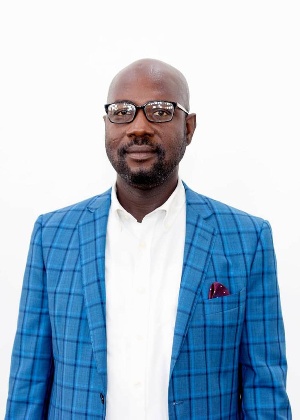Africa News of Thursday, 5 June 2025
Source: www.ghanawebbers.com
Trump hits 10 African countries with travel ban and restrictions
Africa is the continent most affected by the travel ban announced by US President Donald Trump. Seven of the 12 countries on the list are from Africa. The ban takes effect on Monday.
The order prohibits entry to people from Chad, Congo-Brazzaville, Equatorial Guinea, Eritrea, Libya, Somalia, and Sudan. It also includes Afghanistan, Myanmar, Haiti, Iran, and Yemen.
Additionally, there will be travel restrictions for people from Burundi, Sierra Leone, Togo, Cuba, Laos, Turkmenistan, and Venezuela. They cannot travel to the US on certain visas.
Trump stated in a video that they will not allow harmful individuals into the country. He mentioned that the list could change if "material improvements" occur. More countries could be added as threats emerge globally.
The White House described these as "common-sense restrictions." They aim to protect Americans from dangerous foreign actors. Trump referenced a recent terror attack in Boulder as evidence of risks posed by unvetted foreign nationals.
However, the suspect in that attack is Egyptian. Egypt is not included in the affected countries.
The White House explained that countries like Libya and Somalia lack competent authorities for issuing passports and conducting screenings. These nations are currently involved in civil wars.
They also noted a persistent terrorist threat from Somalia and a historical presence of terrorism in Libya. Other affected countries have high rates of visa overstays; Togo has 15%, while Equatorial Guinea has up to 70%.
The African Union expressed concern about potential negative impacts of these measures. They urged the US to adopt a more consultative approach with affected nations.
Somalia pledged to work with the US on security issues. Somali ambassador Dahir Hassan Abdi emphasized his country's valued relationship with America.
The ban starts on June 9th to avoid chaos at airports seen during previous bans. Visas issued before this date will remain valid.
Dual nationals and athletes participating in major events like the World Cup or Olympics will not be impacted by this ban.
This travel ban fulfills a promise Trump made during his 2024 election campaign and may face legal challenges. He signed a similar order in 2017 during his first term.
That order included some of the same countries as this one: Libya, Somalia, and Iran. Critics labeled it a "Muslim ban" since many listed countries were Muslim-majority.
The White House later revised this policy by adding North Korea and Venezuela as non-Muslim majority countries. The Supreme Court upheld this revision in 2018.
President Joe Biden repealed Trump's ban in 2021 calling it "a stain on our national conscience."











